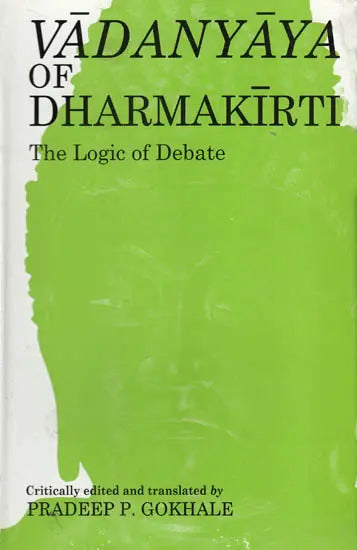Vadanyaya: The Logic of Debate: No. 126 (Bibliotheca Indo-Buddhica S.)
Vadanyaya: The Logic of Debate: No. 126 (Bibliotheca Indo-Buddhica S.) is backordered and will ship as soon as it is back in stock.
Couldn't load pickup availability
Genuine Products Guarantee
Genuine Products Guarantee
We guarantee 100% genuine products, and if proven otherwise, we will compensate you with 10 times the product's cost.
Delivery and Shipping
Delivery and Shipping
Products are generally ready for dispatch within 1 day and typically reach you in 3 to 5 days.
Publisher: Sri Satguru Publications
Author: Pradeep P. Gokhale
Language: Sanskrit Text with English Translation
Edition: 1993
ISBN: 9788170303800
Pages: 213
Cover: Hardcover
Dimensions: 22.5 cm x 14.5 cm
Weight: 340 gm
About the Book
Vadanyaya is an important work by the Buddhist philosopher Dharmakirti, focusing on the theory of debate. The text is dedicated to the rules governing victory and defeat in debates, a fundamental aspect of logic and rational discourse in Indian philosophy. Dharmakirti takes the Nyaya perspective on debate, both as a position to critique and as raw material for reconstruction. His criticism of Nyaya is not only destructive but also constructive, offering a new perspective on debate methodology.
The first half of the book presents Dharmakirti’s own classification of nigrahasthanas (points of defeat) and their definitions, while the second half critiques Nyaya’s classification of the same. The book includes a critical Sanskrit text with an English translation by Pradeep P. Gokhale, accompanied by detailed notes and a glossary, making it an essential resource for students of Indian logic, philosophy, and debate theory.
In the preface, Dr. Gokhale explains the necessity for a critical edition of the text and his approach to translation, which strikes a balance between literal and liberal interpretation to make the text intelligible and useful for English readers. The central theme of Vadanyaya is the classification and nature of nigrahasthanas, as well as Dharmakirti’s contributions to expanding the Nyaya understanding of debate and logic.
The book provides an introduction to the work of Dharmakirti, particularly his views on debate terminology, and contrasts his interpretation with the Nyaya perspective. Dharmakirti’s critique of Nyaya’s approach to debate and its categorization of points of defeat is thoroughly explored in this text, making it a critical study for understanding ancient Indian debate logic.





